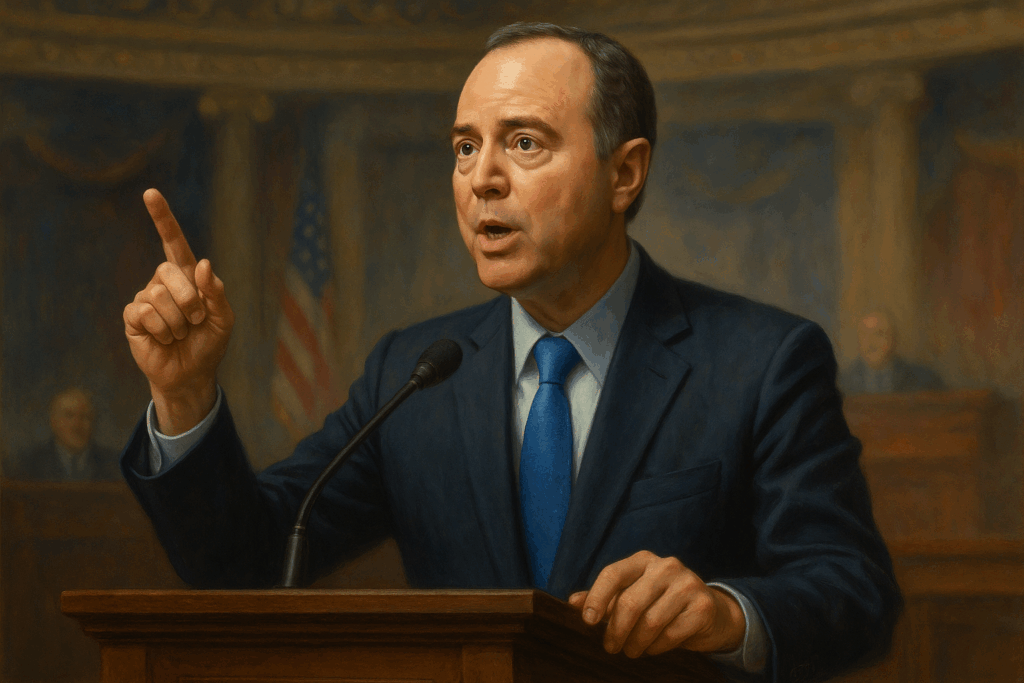 In the scorched landscape of American governance, where accountability is often a talking point rather than a practice, Adam Schiff stands as both symbol and test case. The man who once prosecuted Soviet espionage now finds himself navigating a Senate chamber where truth is not self-evident and loyalty to the Constitution is negotiable.
In the scorched landscape of American governance, where accountability is often a talking point rather than a practice, Adam Schiff stands as both symbol and test case. The man who once prosecuted Soviet espionage now finds himself navigating a Senate chamber where truth is not self-evident and loyalty to the Constitution is negotiable.
Schiff’s public image—architect of impeachment, voice of measured outrage, tireless advocate for transparency—has been burnished by the fires of the Trump era. He played his part with precision: leading the House Intelligence Committee through the Russia investigation, serving as impeachment manager during the first Trump trial, and enduring a retaliatory censure in 2023 by the House GOP for doing his job too effectively. If you’re charting the fall of democratic norms, that censure isn’t just a footnote—it’s a flare.
But let’s not romanticize the résumé. Schiff is not a revolutionary. He is a constitutionalist—one of the last, perhaps—who still believes institutions can hold. That belief is what earned him enemies in the MAGA camp and allies among those clinging to procedural sanity. It’s also what raises questions: Is fidelity to process enough in an age of manufactured crises and weaponized disinformation?
His elevation to the Senate in 2024, stepping into the void left by Dianne Feinstein, was less a coronation than a transfer of guardianship. He now serves on the Judiciary Committee—a frontline position in the slow-motion collapse of legal and moral precedent. He also sits on Agriculture and Small Business, which might seem like a sidestep until you realize those arenas are now battlegrounds too: funding fights, regulatory sabotage, and corporate consolidation hiding under populist slogans.
Schiff’s legislative record is meticulous. He’s advocated for juvenile justice, community housing, sanctions against bad actors abroad. He knows how to write a clean bill, give a crisp floor speech, and work the angles of committee politics. But here’s the core question: can a man who plays by the rules survive in a system where the rules are optional for others?
His critics call him performative. His supporters call him principled. Both might be right. In an era where firebrands and fascists dominate the airwaves, Schiff’s restraint can look like weakness or wisdom depending on what you value more: impact or integrity.
What is clear is this: Schiff represents the vanishing ideal that truth can still be legislated, or at least defended. He’s not the answer to authoritarian rot, but he’s a dam holding back the flood. The cracks are visible. The water’s rising.
And he’s still standing.

